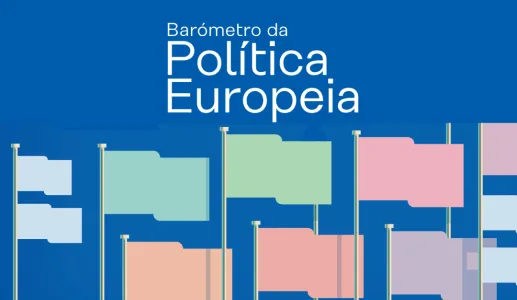European Policy Barometer
Nearly four decades after Portugal joined the European Union (EU), Fundação Francisco Manuel dos Santos released a Barometer on European politics, exploring how Portuguese people view the EU and what they know about its political landscape.
The following are some of the main conclusions from the survey taken by over 1000 people:
- 66% trust the European Commission, significantly higher than their trust in national institutions;
- 85% believe that voting in the EU elections allows them to voice their opinions;
- Women tend to have a better image of the EU than men;
- That being said, there is significant dissatisfaction regarding specific challenges member countries are facing, particularly the issue of poverty and inequality, the conflict in the Middle East and immigration from non-EU countries.
As previously mentioned, the findings suggest that trust in the EU is paramount in Portugal. Notably, trust in the European Union hit a record high in 2024 among Portuguese citizens, contrasting with trust in the national institutions. For example, while 66% of those surveyed trust the European Commission, only 37% trust the Portuguese government. Accordingly, if there were a referendum today to leave the EU, 85% of respondents say they would vote to remain.
When asked about their say on EU policies, nine in ten think EU citizens should have some or a lot of influence on these policies. However, only 35% believe they truly have that level of impact. This discrepancy between ideal and real influence on policies is also seen in regard to the government’s influence and even that of MEPs, meaning that their word seems to have less impact than it should. Meanwhile, big businesses and high-ranking EU politicians are seen as having more influence than they should.
It is important to note that trust in, support for and knowledge about the EU and its policies are consistently higher among specific socioeconomic groups: those who have university degrees, young people aged between 18 and 34 and citizens over the age of 55, who can still remember life in Portugal before joining the EU.
Regarding the member states, three in every four people see Germany as the country that most influences EU politics. Meanwhile, 77% of respondents believe Portugal has less influence than other member states with a similar number of inhabitants, such as Belgium and Sweden.
Finally, nearly half (45%) would be receptive to new countries joining the EU and, within this group, 58% saw Ukraine as the right candidate. On a more contentious note, 83% believe that the EU should have the right to expel members who disrespect democratic principles, seeing Hungary in particular as a prime example of this attitude.
Download the full report (Portuguese version) and find out more about citizens’ perceptions of the European Union and its policies.






